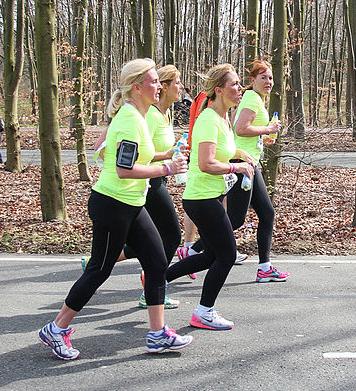You're getting older. But you've been athletic – and you're determined to remain that way to stay healthy and ward off disease. You're part of a growing segment of American adults dedicating themselves to regular exercise as they age, into their 50's, 60's and even 70's. And that's great.
You run several times a week. You swim, cycle or play fairly-rigorous sports. You lift weights to keep your muscles strong. And you watch what you eat for the purposes of remaining lean – and also so that you can continue to be athletic.
So it would appear that you have all the bases covered. As a middle-aged adult, you're doing everything you can to remain in good shape, and to stay ahead of the game. Right?
Well, almost.
One essential safeguard is missing: having regular check-ups for cardiovascular issues.
That's because, based on a new study, researchers are reminding us that no matter how athletic and active you are "our findings suggest that you still can’t outrun your risk factors.”
A recently-published paper in the journal BMJ Open Sport and Exercise Medicine found that of nearly 800 "master athletes" studied, 94 of them (or 11 percent) had "significant cardiovascular disease" and 10 of those athletes were plagued with CAD or "severe coronary artery disease (a blockage in their artery of 70 percent or greater)," according to a statement from the University of British Columbia, where the study was conducted.
Most importantly, none of the 94 athletes showed any symptoms of heart disease.
UBC researchers defined master athletes as "adults aged 35 and older who engage in moderate to vigorous physical activity at least three days a week. The participants included a range of athletes, from runners to cyclists, triathletes, rowers and hockey players."
All too often, it's easy for us to believe that regular exercise and smart food consumption is all we need to maintain good health. However, while both practices are important, a third – regular doctor's visits – is just as vital. These researchers are reminding us that annual check-ups – which include blood pressure and cholesterol monitoring, as well as a cardiac stress test – are essential, especially if one has a family history of cardiovascular issues.
Another key recommendation for middle-aged athletes is not to overdo it, even if you think you can. Doing so doesn't provide added health benefits. In fact, just the opposite.
“There is no evidence that pushing exercise to the limit will make you live longer or your heart stronger, but when taken to the extreme, it may have the potential to do harm,” said Barbara Morrison, the study's lead author. “You should never push yourself so hard that you can’t exercise the next day.”
So while exercising can make you feel and look great, make sure you don't lose sight of what's unseen.
"Masters athletes are not immune to elevated cardiovascular risk and cardiovascular disease," the study's authors wrote in their conclusion. "Comprehensive pre-participation screening ... can detect cardiovascular disease. An exercise stress test should be considered in those with risk factors, regardless of fitness level."




